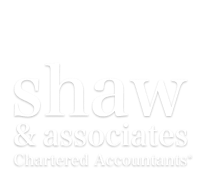How Much Can You Really Claim For Your Home Office?
February 1st, 2018
Posted in: Tax

Self-employed people working out of their own homes may claim business expense deductions on their income taxes for part of their home expenses. There are a number of conditions for this statement, however.
As per Revenue Canada, you can claim part of your home insurance, utilities, cleaning supplies, maintenance and repairs, and a portion of your mortgage interest, property taxes, and Capital Cost Allowance (CCA) on your house. There is a note to be made if you claim your house as a CCA, however—you will need to declare capital gains and recapture when you sell your house.
This is a discussion to have with your accountant—how to deal with all the complexities if you begin the process of claiming a Capital Cost Allowance on your house (and if you should even do this in the first place).
Unfortunately, even for the simple expenses, it is not as easy as recording these expenses and claiming them on your income taxes. Revenue Canada requires that if you are claiming a workspace-in-your-home expense deduction, you would then reduce the amount that you claim by a percentage of your office/work space versus the total finished area of your house, and then also take a percentage of how many hours per day you spend working in that area versus a 24-hour day.
For example, if you have a 1,000 square foot house and your workspace is 100 square feet, you can only claim on 10% of your house expenses. Assuming you work eight hours per day, five days a week, you would then further reduce your claimed expenses to 24% of that subtotal.
You will also be required to reduce the deduction if you do not operate this business year round (for example, if you run your business six months of the year, you would further reduce the amount you would claim by another 50%). If you rent, the same conditions will apply—you can claim part of your rent and any utilities you pay, with the same reductions for percentage of your living space and percentage of time you spend working in this space.
Another note is that the amount of the deduction you claim cannot reduce your income to a loss. Expenses greater than the amount used to offset income can be carried to the next tax year, however.
This all adds up to a workspace-in-your-home expense deduction that can be surprisingly small for businesses working out of their own homes. Another discussion to have with your accountant would be comparing scenarios of working in your own home versus renting or buying a dedicated workspace outside of your home. Your accountant could help you figure out when it would become a good financial move for you to consider renting a dedicated space rather than working in your own home.
Contact Shaw & Associates Chartered Accountants to help you out with your financial needs and tax planning and to give you the advice and services that will take you from where you are to where you want to be with your business. One complimentary meeting with us will put you and your business on a more profitable and positive path.

